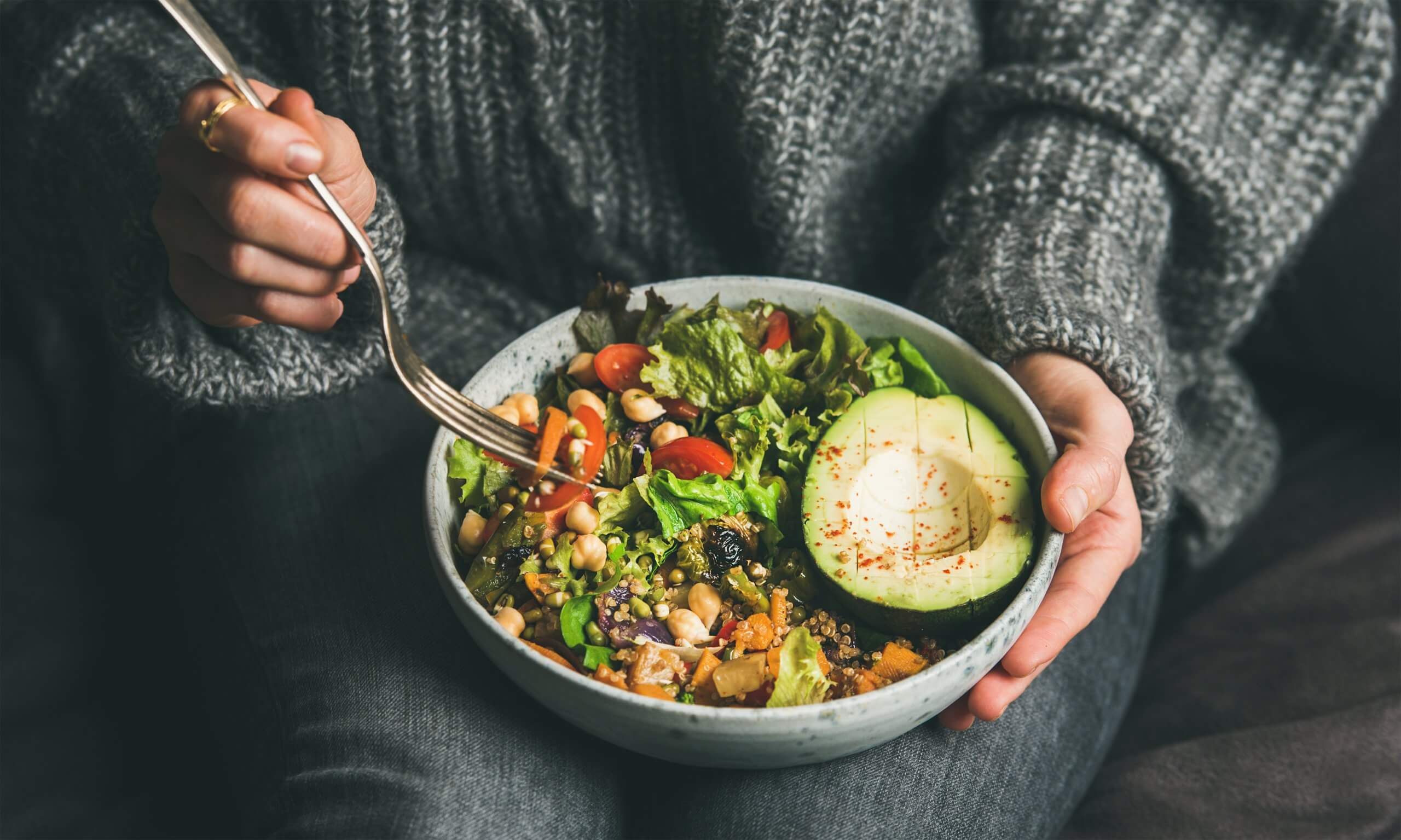What is Vegetarianism?
Vegetarianism is following a diet composed of mostly plant-based foods, which excludes meat, fish, and poultry but sometimes includes other animal products such as dairy or eggs (see modifications on the vegetarian diet here!).
Why become a Vegetarian?
There are many reasons someone might choose to follow this type of diet. For some people, eating animal products might contradict their religious beliefs. Others might limit the consumption of these foods due to ethical considerations relating to animal welfare or the environmental impact of a non-vegetarian diet. Others may choose a vegetarian diet due to its potential health benefits – vegetarian diets are often higher in fibre, heart-healthy fats and antioxidants such as vitamin C.
A well-planned vegetarian diet that includes a variety of fruits, vegetables, whole grains and protein-rich foods can contribute to overall health and may aid in the prevention of certain diseases such as heart disease, some cancers, and type 2 diabetes.
Things to be Aware of
It is important to plan a vegetarian diet thoughtfully in order to ensure that nutrient recommendations can be met. Key nutrients to be keep in mind in a vegetarian diet include iron, calcium, vitamin D, vitamin B12 and zinc. Including a variety of plant-based foods is the best way to ensure your body is getting all the nutrition it needs to thrive! Sometimes, supplements may be needed if you aren’t getting enough from your diet alone – speak to your local Registered Dietitian (see FAQs!) for advice on meeting your individual dietary needs.
FAQs
Q – I am worried that a vegetarian diet won’t be filling enough for me, what can I do?
Vegetarian meals can be as light or as hearty as you want them to be! To add some oomph, try adding some protein-rich lentils, beans or soy-based options (such as tofu or tempeh) to your veggie bowl, soup or salad. Nuts and seeds are also a great option to add more protein and heart-healthy unsaturated fats to a meal. Remember that if you are removing something (such as meat) from your diet, you need to replace it with something with similar nutrients!
Q – I am concerned about getting enough [iron/calcium/vitamin D/vitamin B12/zinc] in my vegetarian diet. What can I do?
These are all key nutrients that may be lower in a vegetarian diet, especially if the foods you choose are lacking in variety. Don’t be afraid of trying new vegetables or grains that you don’t normally eat – this can be an exciting way to shake things up and incorporate nutrients from multiple foods. Also, opt for fortified versions of foods if they are available (such as fortified soy beverage). See our post here for vegetarian sources of these important nutrients. If you are still concerned about your intake, talk to your doctor or dietitian about supplementation.
Q – Where can I find vegetarian food at UBC?
UBC’s residence dining rooms Feast (Totem Park), Gather (Place Vanier) and Open Kitchen all offer a variety of vegetarian and vegan meals and snacks. You can view the residence dining menus online or see UBC’s food website to find more vegetarian options in the café’s and outlets around the Vancouver campus!
Q – Where can I find a Registered Dietitian?
If you are a student living in residence at UBC, the Residence Dietitian is available to meet with you. For everyone else in British Columbia, you can call 811 to speak to a dietitian over the phone for free, and many extended health programs cover in-person visits to dietitians.
Need More Info?
Benefits of a Plant-Based Diet

